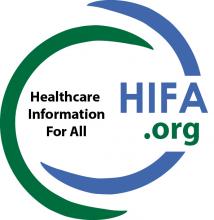
Universal Health Coverage (UHC) is the defining concept of our time for global health. The World Health Assembly and the United Nations General Assembly have called on countries to 'urgently and significantly scale up efforts to accelerate the transition towards universal access to affordable and quality healthcare services'. We argue that universal access to essential healthcare information is a prerequisite for UHC and that it is readily achievable thanks to mobile phone technology. We call on governments, WHO, ITU and the digital health community to work together to define and implement an action plan to achieve mobile healthcare information for all.
Universal access to healthcare information
Healthcare starts with how people look after their own and their families’ health - enabling and empowering everybody to do this better is a fundamental first step towards UHC. Healthcare Information For All, a growing global health network with more than 17,000 professionals and over 300 supporting organisations worldwide, highlights the fact that most citizens in low- and middle-income countries (LMICs) lack reliable, timely, practical information about how to protect their health and what to do in a healthcare situation. The consequences are indecision, delays, incorrect treatment, and failure to take appropriate action - all contributing to avoidable suffering and death - especially in low-resource settings where there is a lack of access to trained health workers (who are often themselves not adequately informed).
The ubiquity of mobile phones changes everything
HIFA's vision of 'a world where every person has access to the information they need to protect their health and the health of others' has until recently been largely aspirational. However, the ubiquity of mobile phones changes everything. Mobile devices can now provide wide access, even without a network connection, to essential healthcare information when and where it is required and in formats, such as audio or short video clips, that can be understood by everyone regardless of literacy level. HIFA has outlined, in a Lancet Global Health paper, the huge potential of this to transform global health. Including essential healthcare information on all mobile phones would be relatively simple and inexpensive, would form a valuable contribution to national strategies on mHealth and would provide an early win for many countries in progress towards UHC.
Mobile healthcare information for all is achievable
There are now available mobile applications (eg First Aid apps from the International Red Cross and Red Crescent Movement; HealthPhone health and nutrition apps from The Mother and Child Health and Education Trust; Safe Pregnancy and Birth app from Hesperian) that pass key criteria (quality, relevance, user-friendly format etc.) for providing essential healthcare information to citizens including in LMICs. These typically address first-aid, pregnancy and birth, care for mothers and children, or other common healthcare situations.
Universal access to life-saving healthcare information can be achieved simply and inexpensively by having one or more such application, configured in a form appropriate to the particular needs of a given country, and in a manner consistent with its wider mHealth strategy, installed on all suitable mobile phones in that country. This could be done, for example, by pre-installation on new phones and/or by after-sale download for existing phones.
Call to action
We call on governments and the global health community to recognise, not least for its potential contribution to the achievement of universal health coverage, the desirability and feasibility of providing mobile healthcare information for all, and to work together to make it happen. Governments have the power, through appropriate regulatory bodies, to encourage or require relevant telecommunication companies to routinely provide essential healthcare information on mobile phones. Governments can also provide an enabling health policy that supports guided transfer of essential healthcare information for citizens via health facilities and public services. Indeed, governments are ultimately responsible to fulfil their obligations under international human rights law to ensure all their citizens have access to the information they need to protect their health and the health of others (UN Office of the Commissioner for Human Rights).
Geoff Royston and Neil Pakenham-Walsh, on behalf of the Mobile Healthcare Information For All (mHIFA) Project.

